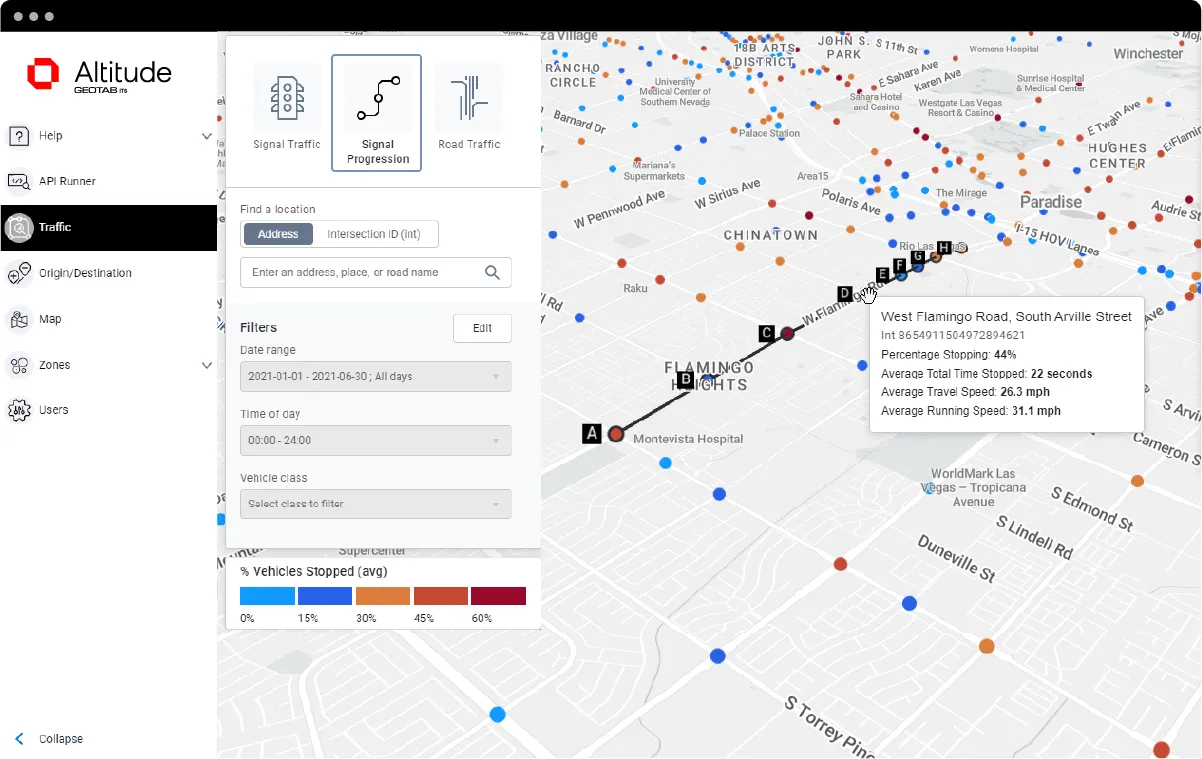IBM researchers are piloting a system with the City of Lyon, France which will be used to help traffic operators in its transportation management centre to evaluate an incident and make more informed assessments about which actions would restore traffic flow. Using real-time traffic data, the new analytics and optimisation technology can help officials predict outcomes and analyse ways to resolve problems. The researchers say that, although traffic management centres have sophisticated video walls and colou
November 15, 2012
Read time: 3 mins
The researchers say that, although traffic management centres have sophisticated video walls and colour maps of real-time traffic that can integrate different streams of traffic data, these do not provide full situational awareness across the transportation network. Today, command centre officials use predefined response plans or make decisions on the fly. Neither method allows traffic operators to factor current and future traffic patterns into their decision-making process.
Using software from IBM, actionable historical and real-time traffic data from the City of Lyon is combined with advanced analytics and algorithms to help model predicted conditions under both normal and incident conditions, and the resulting impact across the entire network of roads, buses and trams. The system can also be used to estimate drive times and traffic patterns in a region more accurately and in real-time.
The new predictive traffic management technology, Decision Support System Optimiser (DSSO), combines incident detection, incident impact prediction and propagation, traffic prediction and control plan optimisation. It also uses the IBM data expansion algorithm, which can estimate traffic data that it is not available from sensors using descriptive flow models in conjunction with the available real-time traffic data. The new technology is compatible with the IBM Intelligent Operation Centre’s Intelligent Transportation solution.
Over time, the algorithms will ‘learn’ to fine-tune future recommendations by incorporating best practices and outcomes from successful plans. The command centre can develop traffic contingency plans for major events such as large sporting events or concerts.
"As the city of Lyon strives to improve mobility for its citizens and become a leader in sustainable transportation, piloting this analytics technology will help the city anticipate and avoid many traffic jams before they happen and lessen their impact on citizens," said Gerard Collomb, Senator Mayor of Lyon. “Using the data that we are collecting to make more informed decisions will help us to resolve unexpected traffic events and optimise public transportation that is becoming a credible alternative to the use of private cars."
“Today transportation departments often capture real-time traffic data, but there is no effective way to manage and find actionable insight to act upon instantaneously for the immediate benefit of the traveller,” said Sylvie Spalmacin-Roma, vice president, Smarter Cities Europe, IBM. “With the City of Lyon, we will demonstrate how the transportation management centre of the future will use analytics to improve the decision-making process, improve first responder time and get citizens moving more efficiently by better managing traffic.”








